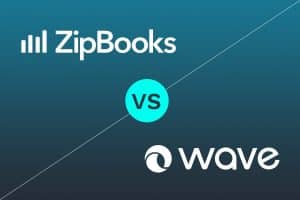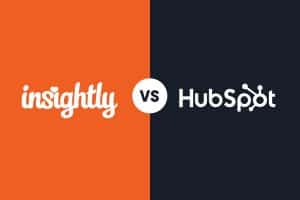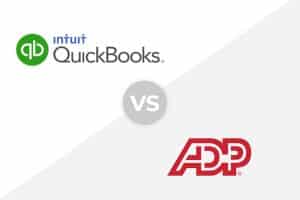A consumer is a person who uses the products and services provided by a business. A customer is a person who purchases products or services from a business. In other words, a customer makes a payment. A consumer isn’t always the person who pays for the item purchased, while a customer always makes a transaction…
Versus
Business Credit Card vs Business Line of Credit: Which To Use?
With a business credit card and business line of credit, you can make purchases up to the credit limit your lender has issued to you. While both are typically most useful for short-term financing, they have differences when it comes to costs and methods by which you can access the credit limit you’re given. In…
ZipBooks vs Wave Comparison: Which Is Best for You?
ZipBooks and Wave are cloud-based accounting programs that offer free plans. ZipBooks is ideal for service firms billing clients by the hour, while Wave is the better choice for companies with transactions in multiple currencies. ZipBooks currently doesn’t have a mobile app but allows you to track time and track income and expenses by project….
Retail Banking vs Commercial Banking: A Comprehensive Guide
The main differences between retail banking and commercial banking are the type of products offered and the communities they serve.
The two most prevalent business banking models are retail and commercial. Retail banking primarily focuses on the general public, covering individuals, communities, and small businesses. Commercial banking, on the other hand, offers products and services that are beneficial to business customers. Deciding which option is right for you will likely depend on your business model…
Sage 100 Contractor vs QuickBooks: Compare Features & Pricing
QuickBooks Online offers many features for businesses across different industries, while Sage 100 Contractor is tailor-made for general, service, and other contractors that need specialized functionality, such as unitary billing, equipment tracking, and project scheduling. QuickBooks Online might be enough for very small contractors that need to track activity by class and location. After carefully…
What Is a 1231 Asset vs Capital Asset?
Section 1231 assets include real estate and depreciable assets used for trade or business and held for more than a year. They are named after section 1231 of the US tax code. Capital assets are defined more broadly as property used personally or held for investment. Knowing the difference in 1231 asset vs capital asset…
Insightly vs HubSpot: Which CRM is Best for Your Business?
When comparing Insightly vs HubSpot customer relationship management (CRM) platforms, you’ll find differences in pricing structure, specialized features, and customer service quality. Insightly has a free option with basic features and paid plans with project management functionality. HubSpot, on the other hand, offers a free plan with superior integrations, reporting tools, and support channel options….
QuickBooks Payroll vs ADP Run: Which One Is Right for You?
QuickBooks Payroll and ADP Run both offer cloud-based payroll solutions and include tax payments and filings in their services. When comparing QuickBooks Payroll vs ADP Run, the primary difference is in human resources (HR) features. QuickBooks Payroll concentrates on payroll processing with unlimited pay runs but has limited HR functionality and integrates only with Intuit…







